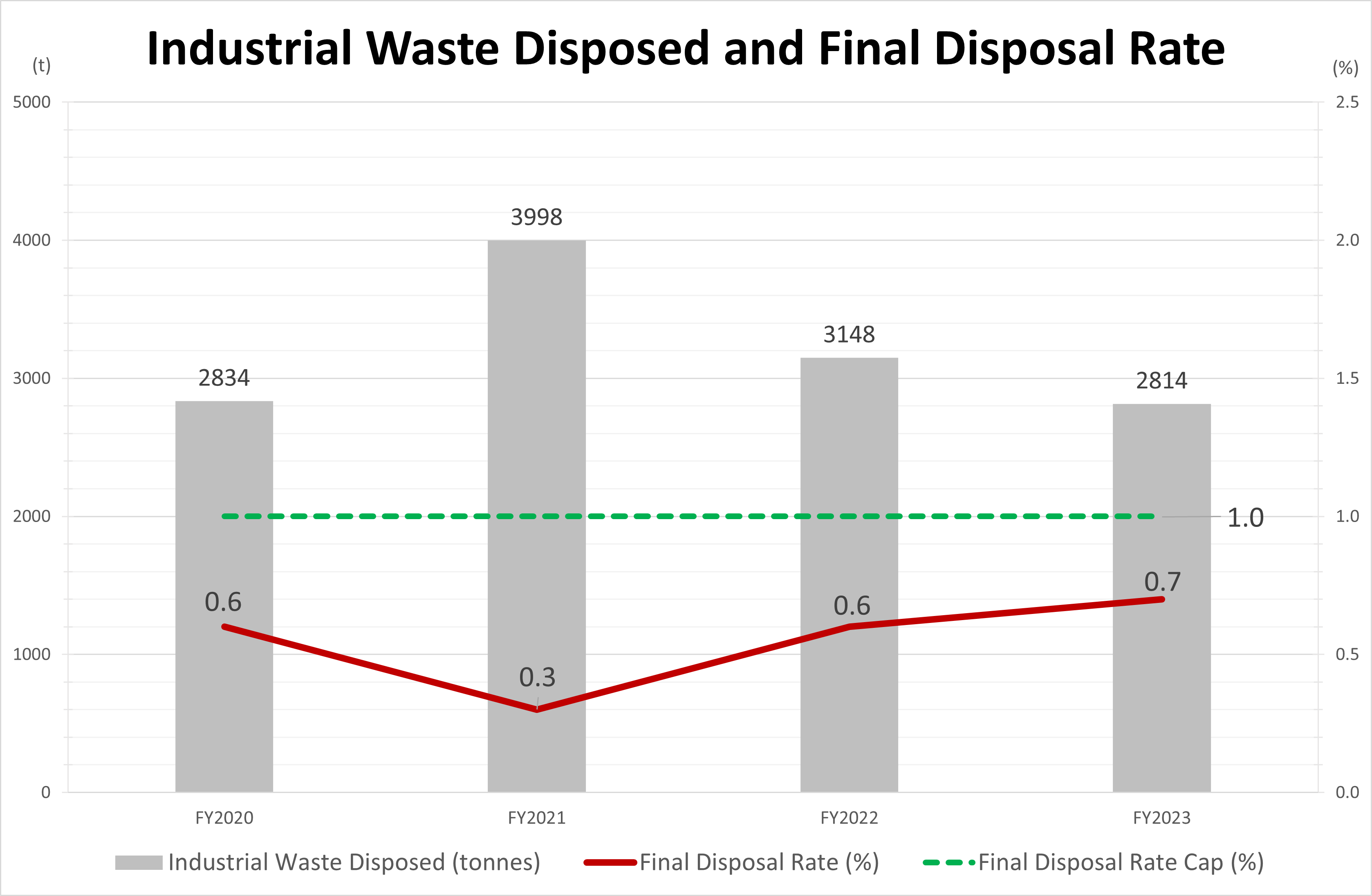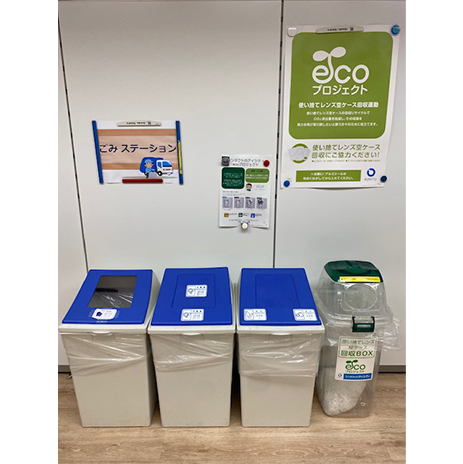Prevention of Environmental Pollution
Basic Concept
To prevent environmental pollution, the JAL Group strives to reduce and properly manage emissions of hazardous chemicals and waste from its aircrafts and various business sites.
Management and Reduction of Hazardous Chemicals
The JAL Group manages hazardous chemical substances in accordance with the Law concerning Pollutant Release and Transfer Register (PRTR Law) and strives to monitor the amount handled and to reduce the amount released. In addition, nitrogen oxides (NOx), carbon monoxide (CO) and hydrocarbons (HC) emitted from the engines of aircrafts all meet the standards set when the type certificate was obtained and will continue to minimize these emissions by upgrading to the latest aircrafts.
Waste Management
The JAL Group is working to reduce, reuse, and recycle the amount of waste generated, in addition to properly managing waste in accordance with laws and regulations. To improve waste performance, waste generation is monitored by means of internal environmental audits and strive for continuous improvement for the more effective use of resources.
Also, the JAL group does not only engage in resource recycling within our own group, but also collaboratively work together with a variety of stakeholders.
Regarding industrial waste, a target of "maintaining a final disposal rate of 1% or less" is set to reduce the amount of waste sent to landfills. To achieve the goal, investment was done since FY2023 for a waste management system for the purpose of managing and analyzing our waste performance to minimize waste, strengthening compliance, etc. The system is used to survey the amount of industrial waste generated, recycling rate, and final disposal rate.
In FY2023, the amount of industrial waste disposed was 2,814 tonnes and the final disposal rate was 0.7%.

Additionally, to raise awareness of waste management, waste sorting is promoted which all employees can practice in their daily activities, as well as providing all employees with environmental training including waste management, and seminars for those in charge of practical operations by inviting experts from outside.


